Summary
- The rate of UK inflation jumped by more than expected in June, hitting 3.6%. It follows a reading of 3.4% in May.
- The Bank of England had forecast 3.4% this month. Other economists including those at Pantheon Macroeconomics thought inflation would creep up to 3.5%, but a reading of 3.6% comes as a surprise.
- Inflation is expected to rise further as the year progresses.
- “Looking ahead, upward pressures are likely to push annual inflation higher through the year. We see headline inflation peaking at 3.8%, before slowing through 2026,” said Sanjay Raja, Deutsche Bank’s chief UK economist.
- Although the Bank of England will pay close attention to June’s inflation report ahead of its next interest rate decision, a cut is widely expected on 7 August after signs of weakening in the jobs market.
- The economy also shrank for the second month in a row in May, according to GDP figures published on Friday.
| What is inflation? | What is the Consumer Prices Index (CPI)? | Inflation outlook | When will interest rates fall further? | CPI release dates | Bank of England meeting dates |
Hello and welcome. Will inflation rise tomorrow?
Good afternoon, and welcome to MoneyWeek’s live report on inflation. June’s CPI report will be published at 7 am tomorrow. Some economists expect inflation to hold steady at 3.4%, in line with the Bank of England’s forecast, while others expect it to creep up to 3.5%.
Stick with us as we bring you the latest preview analysis and live reporting. We will be looking at what’s driving UK prices, what it means for the Bank of England’s upcoming interest rate decisions, and how it impacts your personal finances.

Rising food prices could push inflation higher
Research provider Pantheon Macroeconomics expects CPI to creep up to 3.5% in June, partly driven by food prices. This would represent a 0.1 percentage point increase compared to May, when inflation was 3.4%. Extreme weather has impacted harvest yields, and higher employment costs are also pushing prices up.
Although Deutsche Bank expects the headline rate of inflation to hold steady at 3.4% in June, it also acknowledges the “continued pressure building in food prices”, describing retail and wholesale prices as “uncomfortably strong”.
Kantar grocery price inflation hit 4.7% in June, the highest annual rate since February 2024.
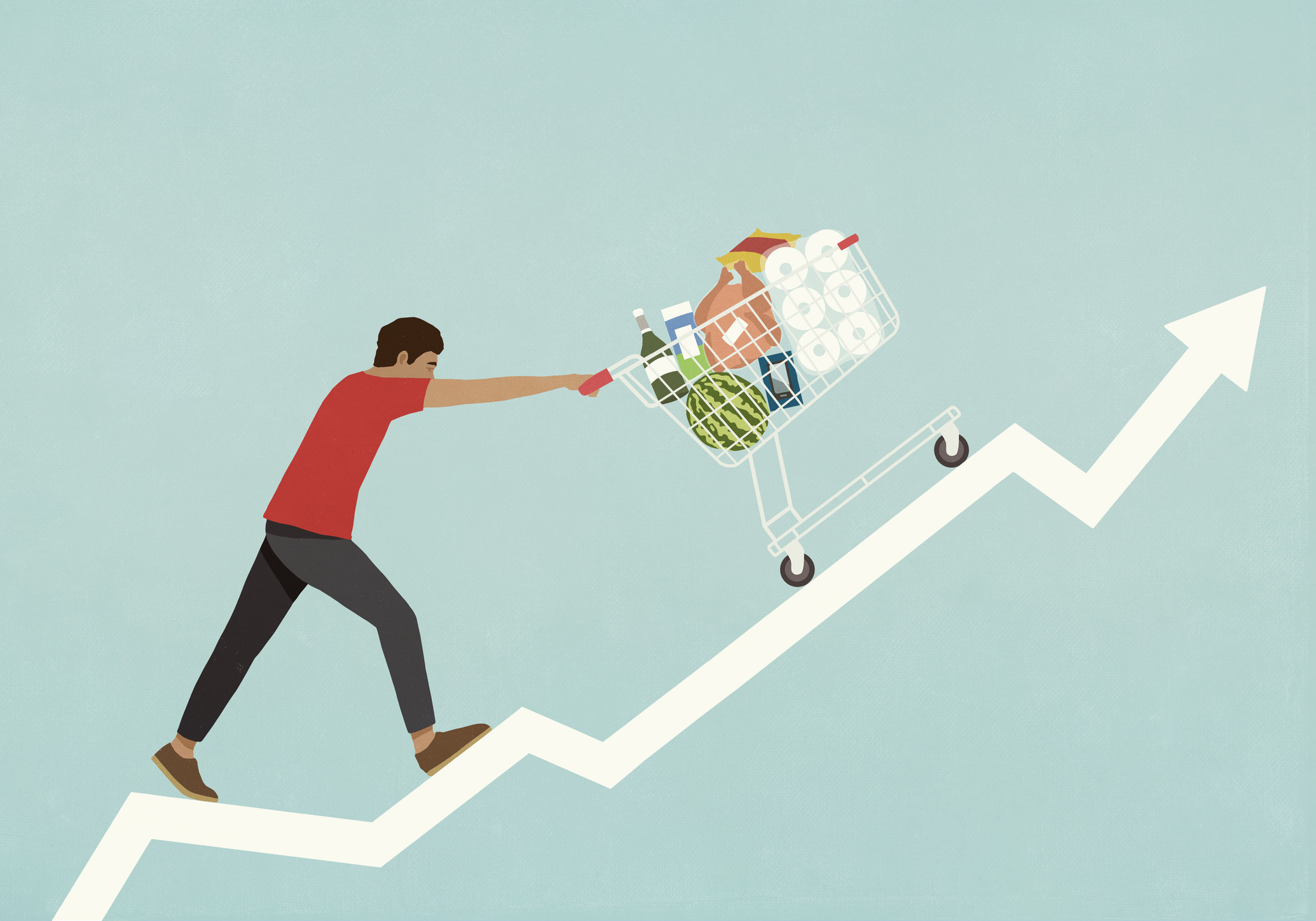
Pantheon Macroeconomics thinks food inflation could hit 4.7% in tomorrow's ONS report, up from 4.4% in May. This would match what Kantar's grocery inflation report shows.
When was index day?
The exact CPI reading this month could depend on when the ONS collected its index data. Pantheon Macroeconomics has assumed it took place on 17 June, while Deutsche Bank has opted for 10 June. The timing of index day will impact the accuracy of their forecasts.
If the ONS went for earlier in the month, the headline CPI figure could be slightly lower than the 3.5% Pantheon has forecast. This is because airfares, hotel prices and clothes prices all appear to have risen later on in the month.
The warmer weather is partly to thank. It seems to have pushed hotel and clothes prices up in late June, as demand for travel and summer wardrobe items increased.

Pantheon Macroeconomics thinks index day fell on 17 June, but it is possible the ONS opted for an earlier date. This could impact the reading we see in tomorrow's report.
Will the Bank of England cut interest rates in August?
Even if inflation creeps up slightly to 3.5% in tomorrow’s report, an interest rate cut seems to be on the cards when the Bank of England next meets on 7 August.
The latest ONS report showed a marked slowdown in the jobs market which, if sustained, could strengthen the case for faster rate cuts. The unemployment rate increased to 4.6% annually between February and April, the highest level in almost four years. The number of job vacancies dropped by 63,000 over the quarter.
ONS survey data suggests some firms are not recruiting new workers or replacing those who have left as business confidence weakens. Wage growth also slowed to 5.2% annually over the same period, down from 5.6% in the previous report.
This could be linked to the fact that employers’ National Insurance contributions and the National Living Wage went up in April, making it more expensive for businesses to employ people. There are also fears that Donald Trump’s tariffs could dampen growth and push costs up for businesses and consumers.
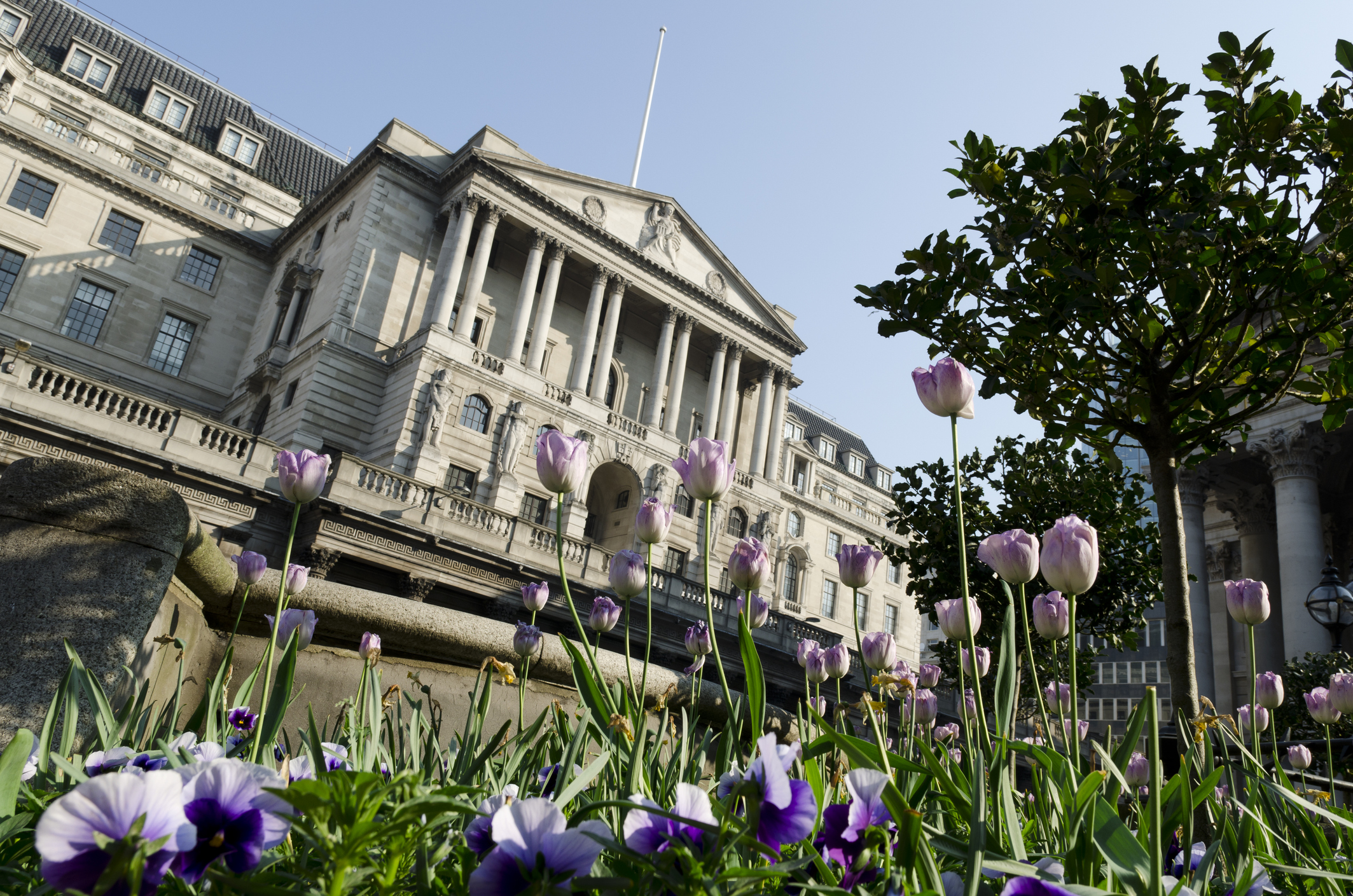
Inflation vs growth concerns: a tough tightrope for the BoE
It feels strange to be discussing interest rate cuts when inflation is high and rising. The Bank of England expects CPI to hit 3.7% by September. But the MPC has a tough tightrope to walk. As well as keeping inflation under control, it needs to support economic growth.
Growth fears are now ramping up after signs of weakening in the labour market – discussed in our previous post. The economy also shrank for the second month in a row in May, according to GDP figures published on Friday.
“The upcoming base rate decision will be more than a number and it will provide critical insight into how the Bank of England views the balance between taming inflation and supporting a slowing economy,” said Adam French, consumer expert at financial information company Moneyfacts.
“Beyond the immediate market reaction, it will shape mortgage rates, guide fiscal confidence and underpin the central bank’s institutional credibility.”
What does higher inflation mean for your savings?
Savers are now getting squeezed on both sides. Inflation is high and rising, but interest rates are coming down.
Remember, even if inflation doesn’t creep up tomorrow, the Bank of England expects it to hit 3.7% by September. At the same time, most economists are forecasting two more interest rate cuts before the end of the year.
If the interest rate on your savings account is lower than the rate of inflation, you are losing money in real terms. Shop around for a better rate. If you are happy to lock up your cash for a year or so, it could make sense to fix your savings to lock in higher rates for longer.
Best rates on the market
The good news is that lots of accounts on the market still offer an inflation-beating rate. Using a comparison tool like Moneyfacts can help you find the best deals:
- Best easy-access savings rate: 5% (Cahoot and Chase)
- Best easy-access cash ISA rate: 4.98% (Trading 212)
- Best one-year fixed savings rate: 4.52% (Tandem Bank)
- Best one-year fixed cash ISA rate: 4.16% (Virgin Money)
Source: Moneyfacts as of 15 July 2025. Rates based on accounts with no minimum deposit requirements.
Make sure to read the small print to understand whether the interest rate only applies up to a certain balance. Some accounts also include temporary bonus rates. Always remember that the interest on a variable-rate account can drop at any time. It is also important to pay close attention to any withdrawal restrictions.
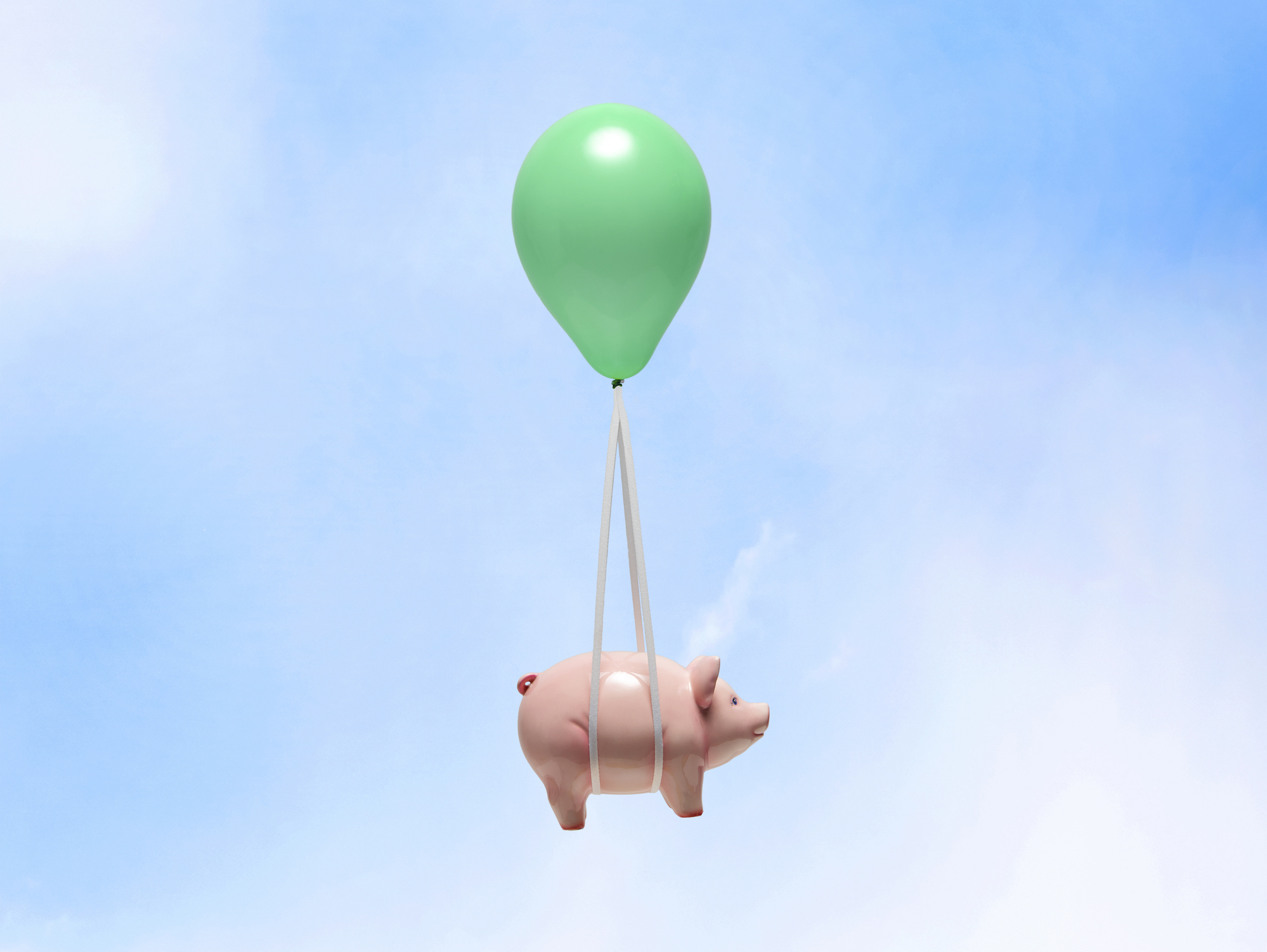
Are consumers feeling stretched by rising prices?
UK households have been holding up fairly well, and many have a comfortable savings buffer. The UK household saving ratio was 10.9% in the first quarter of 2025, according to the latest ONS figures. Although inflation is above target, prices are rising far more slowly than at the peak of the cost-of-living crisis. For context, inflation hit 11.1% in October 2022.
That said, there have been a string of nasty bill hikes in recent months. ‘Awful April’ saw energy costs rise by 6.4% annually, water bills by an average 26%, and council tax bills by around 5% in most local authorities.
Energy costs have since fallen back with the new Ofgem price cap kicking in from July, but gas and electricity bills are still significantly higher than before the energy crisis.
Going forward, new pressures could emerge too. Real wages have generally been rising since mid-2022, but this could be set to change now that the economy is slowing. Businesses could look for ways to cut their wage bill to help offset the effect of higher National Insurance contributions. Some have warned that this will mean reducing employees’ hours or offering smaller annual pay rises.
Commenting after last month’s labour market report, which showed a slowdown in the rate of wage growth, Sarah Coles, head of personal finance at Hargreaves Lansdown, said: “In this environment it’s key to take stock as soon as possible. You can’t rely on wage rises in the coming months, so you need to build a robust budget right now rather than hanging on for payday.
“It’s also worth considering what would happen if you were unable to work for a period. It’s why advisers will recommend having an emergency savings safety net big enough to cover 3-6 months’ worth of essential spending.”
See our article: “How much should I have in emergency savings?”

Thank you for following our live analysis this afternoon. We will be back tomorrow morning before the inflation figures are published at 7am. Join us then.
Welcome back
Good morning and welcome back to our inflation live coverage. June’s report will be published at 7am.
To recap, the consumer prices index rose by 3.4% on an annual basis in last month’s report, covering May. The rate of price increases is expected to either hold steady at this level or creep up to 3.5% in June.
Stick with us for live reporting and analysis.
The path of inflation
Inflation has been rising over the past eight months but remains well below the peak seen in October 2022, at the height of the cost-of-living crisis.
Consumer prices index – annual inflation rate (%)
BREAKING: Larger-than-expected inflation jump
Inflation hit 3.6% in June, up from 3.4% in May – higher than the 3.4% predicted by the Bank of England and the 3.5% predicted by some economists.
Transport costs push inflation higher
The largest upward contribution to the increase in the CPI rate came from the transport division, particularly motor fuels, the ONS said.
Although the average price of petrol fell between May and June 2025, it fell by less than a year ago.
There were also upward effects from air fares, rail fares, and maintenance and repair of personal transport equipment.
Transport costs rose by 1.7% in the 12 months to June, up from 0.7% in the 12 months to May.

Highest level of food inflation in 16 months
The rate of food inflation increased for the third month in a row, coming in at 4.5% annually. This is the highest level recorded since February 2024, but remains well below the peak of 19.2% recorded in March 2023.
Some economists, including those at Pantheon Macroeconomics, had been expecting an even higher reading of 4.7%. Poor harvests and higher employment costs have put upward pressure on food prices in recent months.
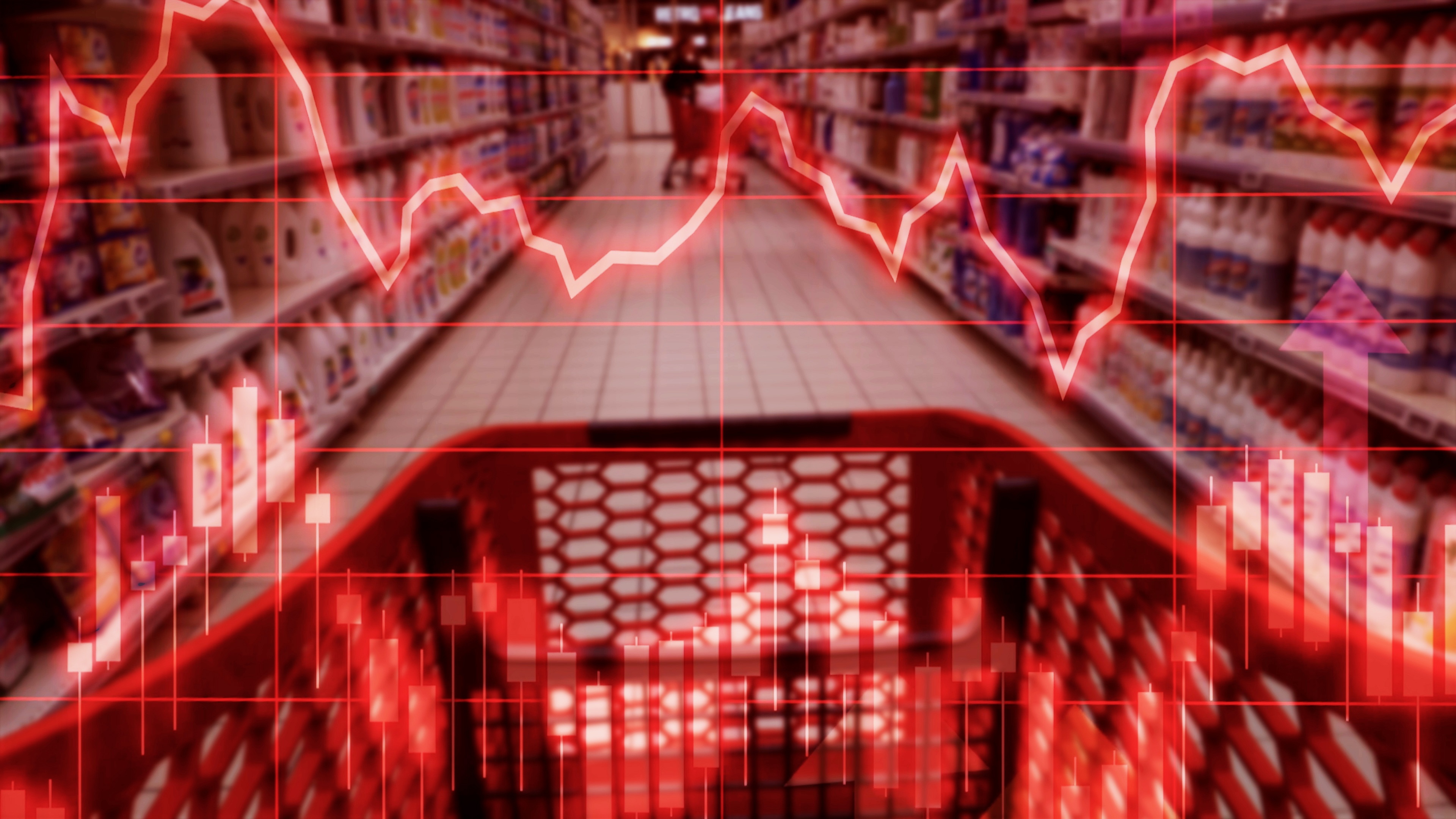
Rachel Reeves: "working people still struggling with cost of living"
Responding to this morning's inflation report, chancellor Rachel Reeves said: "I know working people are still struggling with the cost of living. That is why we have already taken action by increasing the national minimum wage for three million workers, rolling out free breakfast clubs in every primary school and extending the £3 bus fare cap. But there is more to do and I’m determined we deliver on our Plan for Change to put more money into people’s pockets."
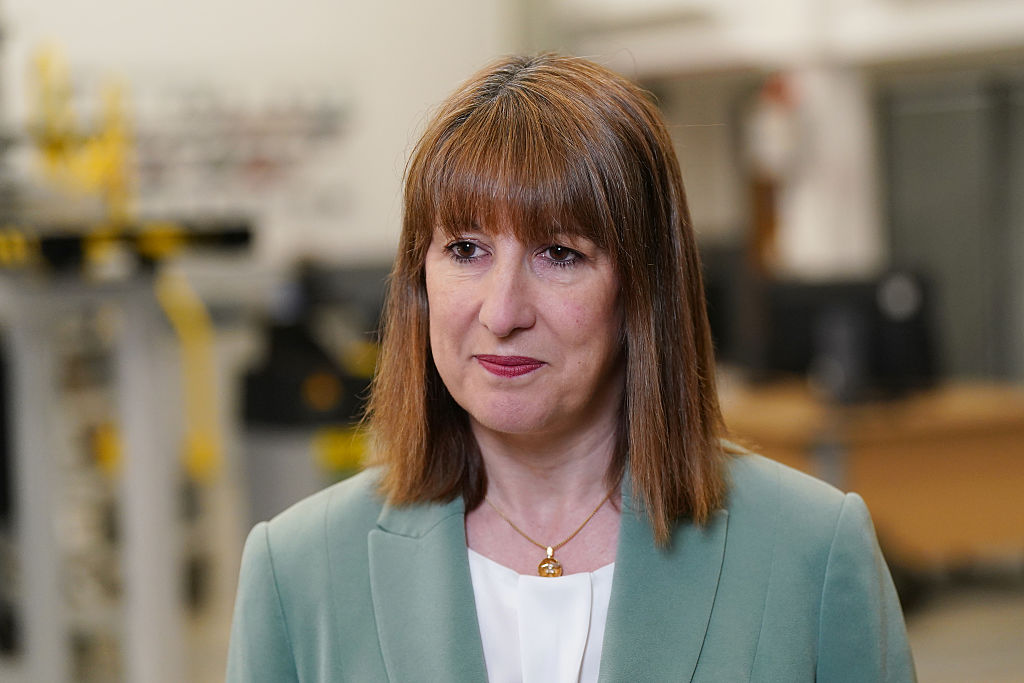
Households should exercise caution
Rising inflation is never good news for consumer budgets – and some might be starting to tire of the ongoing gloom and doom.
Some households are still recovering from April’s bill hikes, not to mention the high levels of inflation we have witnessed over the past few years. Tax hikes look like they are looming on the horizon and the world feels like a volatile place, with Donald Trump’s trade war and geopolitical risks threatening to push inflation higher and dampen growth.
While interest rates have been coming down, they remain high, putting pressure on those with large debts and mortgages too.
“As the country waits for the next interest rate decision, falling domestic energy bills from the start of this month may ease household costs to some extent, though the energy price cap remains 10% higher than a year ago,” said Alice Haine, personal finance analyst at investment platform Bestinvest.
“For those still struggling with everyday bills or weighed down by job security concerns, keeping expenditure lower than household income is the simplest step towards a more secure financial future,” she added.
“Pausing big-ticket purchases, cancelling unwanted subscriptions, slashing non-essential expenditure, shifting expensive debts to a 0% balance transfer credit card and building up some reserve funds to cover unexpected expenses can also help to keep budgets in balance when prices remain elevated.

Deutsche Bank: “An uncomfortable print for the BoE”
Yesterday, we wrote a post on this page about the challenging tightrope the Bank of England has to walk. As well as being responsible for keeping inflation in check, the Bank needs to support economic growth.
Keeping interest rates high might help bring inflation down, but it also puts pressure on the economy. Recently, we have seen signs of a slowdown in the jobs market and two consecutive months of GDP drops. As a result, a rate cut is widely expected when the Bank next meets on 7 August.
Today’s inflation report doesn’t make life any easier for the Bank of England, though. Deutsche Bank has called it “an uncomfortable print”. The headline rate of inflation came in above the BoE’s expectations, and so did other key metrics like services inflation.
“What does this mean for the Monetary Policy Committee (MPC)? Perhaps given the focus on the labour market, tomorrow's data may hold more weight when it comes to shaping the monetary policy outlook. But today's data won't give the MPC any sense of comfort on the inflation side,” said Sanjay Raja, Deutsche Bank’s chief UK economist.
“Is an August rate cut in jeopardy? No, we don't think so. There's enough of a slowdown in GDP and the labour market to warrant a 'gradual and careful' easing of monetary policy. But the onus now rests on the labour market to shape how far and how fast the MPC can cut this year and next.”
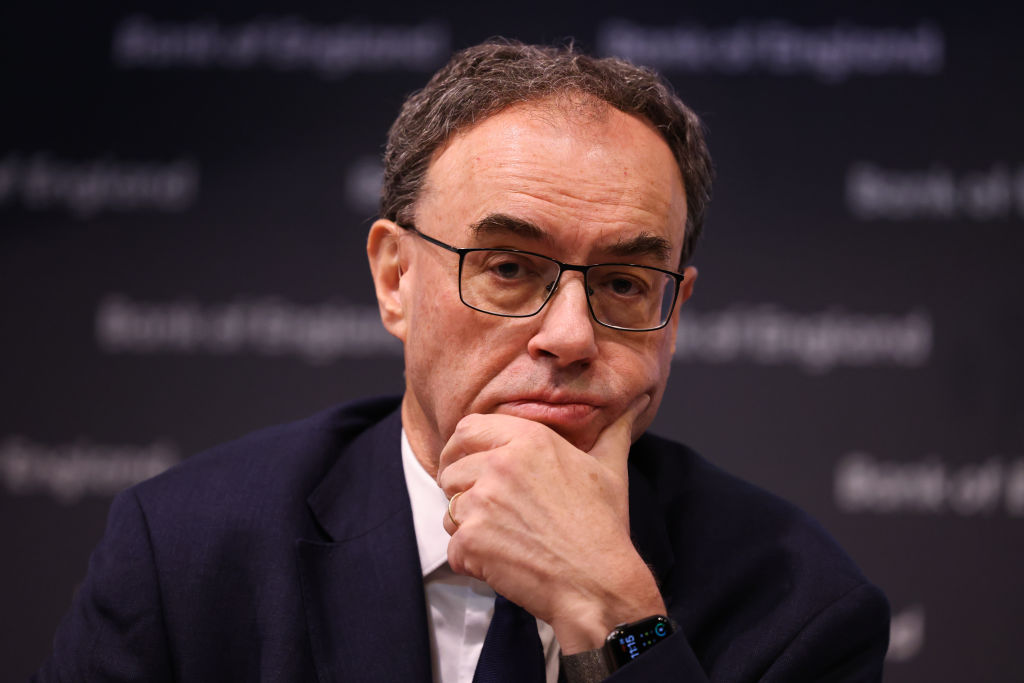
Governor of the Bank of England, Andrew Bailey
How quickly will inflation recede?
The Bank of England thinks inflation will remain at elevated levels for the rest of the year, potentially inching up to 3.7% in September before falling back towards the 2% target in 2026. But there are a number of unknowns.
“Labour market data suggests the UK economy is now starting to struggle. A slowdown would ordinarily suppress inflation, but still-high wage inflation is muddying the waters. That metric remains inconsistent with the BoE’s 2% inflation target, at around 5%, and the extra spending power in parts of the workforce is still running counter to the wider trends of economic slowdown and job losses,” said Rob Morgan, chief investment analyst at wealth management firm Charles Stanley.
“Increases in the minimum wage and payroll tax have raised total labour costs and many businesses are passing these onto consumers. This is likely to keep inflation significantly over 3% for the rest of the year, making it difficult for the BoE to cut interest rates aggressively,” he added.
On top of this, tariffs are creating a sense of uncertainty. Essentially a tax on trade (paid by importers), tariffs are expected to push inflation higher in the US. This could have a contagion effect as other countries respond with retaliatory measures and costs are pushed up throughout global supply chains, causing inflation to rise elsewhere too.
It could also go the other way, though. If tariffs put the brakes on economic growth, the effect in the UK could be disinflationary. “At the very least the ambiguity makes it difficult for companies to plan and invest and, at worst, [tariffs] could exacerbate an economic slowdown,” Morgan said.

What does the inflation jump mean for mortgages?
Today’s inflation surprise isn’t great news for mortgage borrowers, although it is unlikely to derail the chances of an August interest rate cut, particularly if tomorrow’s labour market data shows a continued slowdown in the jobs market.
Recently, mortgage rates have been ticking downwards, reflecting the market’s confidence that there will be around two more base rate cuts before the end of the year. Market competition between lenders has helped too.
“Today’s news could take a bit of momentum out of those reductions but may not be enough to make a major reversal in those mortgage rate improvements,” said David Hollingworth, associate director at broker L&C Mortgages.
The average 2-year fixed residential mortgage rate is currently 5.03%, according to financial information company Moneyfacts. The average 5-year rate is 5.02%. Many borrowers will be able to secure a better rate by shopping around.

Mortgages: millions could see monthly repayments rise, despite falling rates
Recent drops in mortgage rates will bring little comfort to those coming off a relatively cheap deal agreed before rates started rising in 2021. Their monthly repayments are likely to jump when they refinance, as the low rate they locked in several years ago will come to an end.
Although mortgage rates are cheaper than they were two years ago, they remain significantly higher than the levels seen for more than a decade after 2008.
Around 1.6 million fixed-rate deals are due to come to an end in 2025, according to trade association UK Finance. Meanwhile, the Bank of England has calculated 3.6 million mortgages are due to be renegotiated during the next three years, amounting to 41% of all outstanding home loans.
Those who are about to come off their previous deal will be hoping for further base rate cuts, but it is worth pointing out that mortgage rates don’t always tumble in tandem with the base rate.
Fixed-rate mortgage deals are priced based on swap rates – another kind of financial instrument. These can move up and down based on other factors like inflation, bond yields and growth expectations.
“Accurate forecasting is going to be tricky, so if you are remortgaging, it pays to lock in a rate as soon as possible – a few months before your deal ends,” said Sarah Coles, head of personal finance at Hargreaves Lansdown.
“That way, if rates rise between then and the end of your deal, you have secured a great rate, and if they fall, you can shop around for a better deal elsewhere.”
Just make sure you read the small print carefully to understand the deadlines and any fees you might lose when ditching a deal.

How have markets responded to June’s inflation jump?
The FTSE 100 has shrugged off this morning’s inflation jump, opening 0.1% higher. The mid-cap FTSE 250, which is more exposed to the domestic economy, fell 0.2%.
UK equities have had a strong year so far in 2025. The FTSE 100 reached a record high on Tuesday, crossing the 9,000-point mark for the first time.
Volatility in the US has prompted some investors to look elsewhere in search of a more diversified opportunity set in recent months. The UK looks undervalued compared to its US and global counterparts, having been unloved since Brexit, making it an attractive proposition to some investors.
As long as we don’t experience a significant growth slowdown, further interest rate cuts could act as a tailwind for equity markets. Most economists expect two more rate cuts from the Bank of England before the end of the year.
When borrowing costs fall, it reduces the burden of debt for businesses, which can help boost investment and profitability. It also eases pressure on consumers, making them more likely to spend money.
Of course, uncertainties remain. If interest rates are kept restrictive for too long, it can hurt economic growth, resulting in a more challenging environment for businesses. Trump’s trade war could also dampen growth, as could an escalation of the conflict in the Middle East, particularly if it were to result in a sustained increase in oil prices.

“Parts of the gilt market may need to adjust”
Long-dated bonds which mature many years in the future are more exposed to inflation and interest rate risk than short-term bonds. These longer-dated parts of the market could be at risk of a sell off, according to some analysts.
“The persistence of inflation above 3%, well ahead of the Bank of England’s 2% target, highlights the risk that higher inflation is here to stay, and parts of the gilt market need to adjust,” said James Flintoft, head of investment solutions at AJ Bell.
“This comes at a time when there are widespread concerns over the UK’s fiscal path, with the Mansion House speech last night providing little clarity on the situation ahead of the Autumn Budget.
“On top of that, a recent report from the Office for Budget Responsibility highlighted that UK pension schemes, typically a strong supporter of the gilt market, are expected to be selling gilts over the next decade, adding upward pressure to gilt yields.”
In Flintoft’s view, investors holding gilts (traditionally seen as a safe-haven asset in times of volatility) may need to check they are holding the right part of the market. Short-dated bonds could be a safer bet than long-dated ones.
“AJ Bell’s funds use a combination of shorter-dated gilts and US Treasuries to combat the risk that longer-dated bond yields need to move higher, meaning bond prices fall to compensate investors for inflation and fiscal uncertainty,” he said.
“We also hold shorter-dated US TIPS (Treasury Inflation Protected Securities) to help offset inflation in the US, which is also above target and showing the first signs of upward pressure from President Trump’s tariffs.”
What’s happening with house price inflation?
House price data is also published each month on inflation day. Each report from HM Land Registry is released with a six-week time lag, meaning today’s figures cover the 12 months to May.
House prices rose by 3.9% on an annual basis in May, up from a revised estimate of 3.6% in April. It brings the average UK property to £269,000.
“This marks a modest acceleration in annual growth, though it follows a period of volatility when house price inflation slowed as a result of Stamp Duty Land Tax (SDLT) changes introduced in April,” said Holly Tomlinson, financial planner at wealth management firm Quilter.
On a monthly basis, house prices rose by 1.1%.

What does an inflation jump mean for retirees?
A jump in inflation is bad news for retirees as it erodes the value of their pension savings.
Defined contribution pensions do not come with inflation protection, unlike older-style defined benefit schemes. Similarly, those who decide to buy an annuity in retirement could see their income diminished in real terms, if they opt for a level annuity rather than an inflation-linked product.
“Annuity incomes have inched down slightly but are currently delivering good value – a 65-year-old with a £100,000 pension can currently get up to £7,793 per year from a single-life level annuity with a five-year guarantee,” said Helen Morrissey, head of retirement analysis at Hargreaves Lansdown.
“This may seem like enough to meet your needs, but given that level annuities don’t increase, you need to think about whether it’s going to give you what you need over the long term. A spike in inflation could do real damage to your budget.”
The downside with inflation-linked products is that the starting incomes are much lower. Data from Hargreaves Lansdown shows an annuity that escalates by 3% per year gives a starting income of up to £5,789, assuming the same criteria as before.
Private pension income is an important part of most people’s retirement plan, but the state pension also plays an integral role. The good news is this is protected from inflation by the triple lock guarantee. This increases payments each year in line with inflation, wage growth or by 2.5% – whichever is highest. The government has promised to keep this policy in place for at least the duration of this parliament.

Thank you for joining us – plus, some dates for your diary
For those who are following the latest inflation news with interest, here is a list of upcoming CPI report dates for 2025:
- 20 August (covering July)
- 17 September (covering August)
- 22 October (covering September)
- 19 November (covering October)
- 17 December (covering November)
- 21 January 2026 (covering December)
And with that, we are wrapping up our inflation coverage for the day. Thank you for following along.
We will be back again next month, reporting live on the Bank of England's interest rate decision on 7 August. The MPC is widely expected to cut rates. Join us for reaction and analysis.
